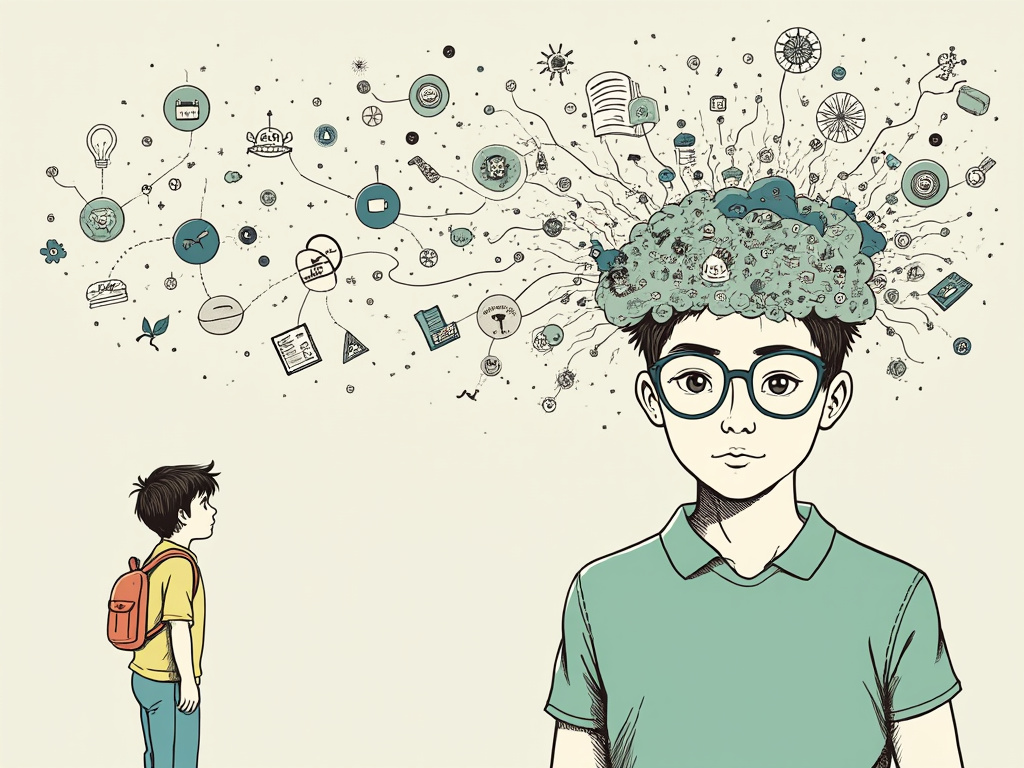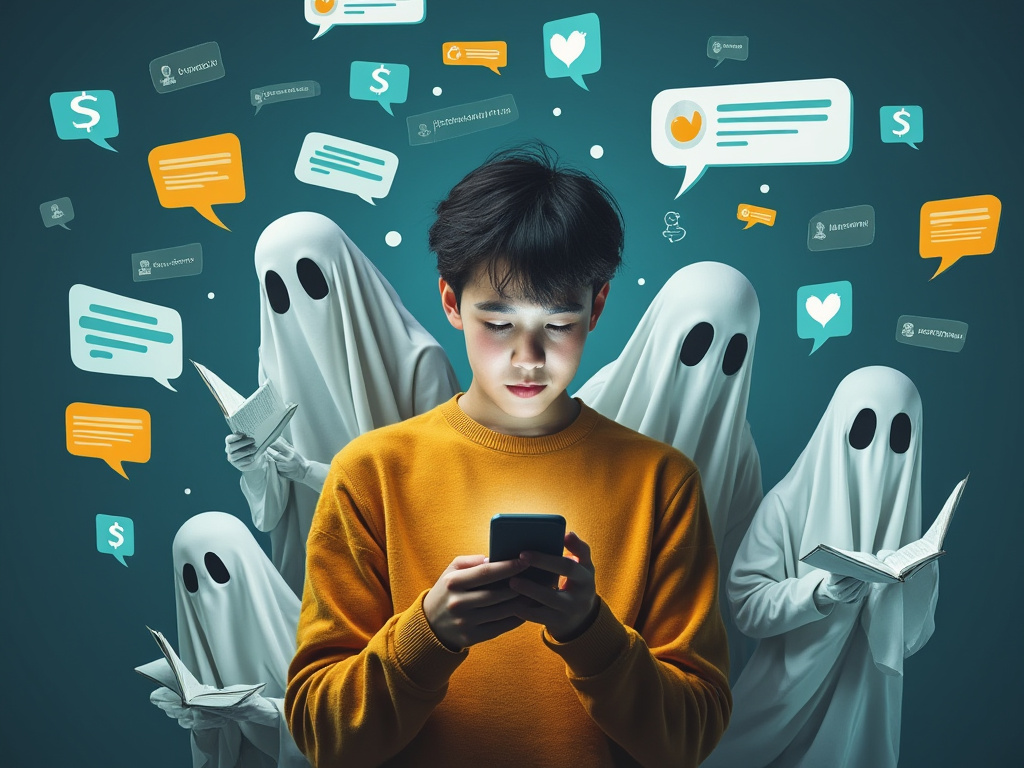Understanding Imaginary Audience Psychology: The Hidden Observers in Our Minds
Imaginary audience psychology is a fascinating concept that sheds light on how we perceive ourselves in relation to others, particularly during adolescence. This article explores the intricacies of this psychological phenomenon, its impact on behavior, and its significance in human development.
What is Imaginary Audience?
Imaginary audience refers to the belief, primarily experienced during adolescence, that one is constantly being observed and evaluated by others, even in solitude. This psychological phenomenon is closely tied to the developing sense of self and the growing capacity for abstract thought that characterizes the teenage years.

As noted in a recent study, “In most movies, the ‘imaginary audience’ is already hidden in the structure at the beginning of the creation, and the acceptance of the audience means the finalization of the movie art.” While this quote refers to film creation, it parallels the psychological concept, where individuals create an imaginary audience in their minds.
The Impact of Imaginary Audience
The imaginary audience can significantly influence behavior and decision-making. It may lead to:
- Increased self-consciousness
- Heightened concern about appearance and social performance
- Anxiety in social situations
- Motivation for self-improvement
- Conformity to peer pressure

For instance, a teenager might spend hours choosing an outfit for a social gathering, feeling as if peers will scrutinize every detail. An adult might rehearse a presentation repeatedly, imagining critical observers even when practicing alone.
Theoretical Perspectives
The concept of imaginary audience is rooted in several psychological theories:
- Piaget’s Cognitive Development Theory: The imaginary audience aligns with Piaget’s formal operational stage, where adolescents develop abstract thinking and hypothetical reasoning capacity.
- Elkind’s Theory of Adolescent Egocentrism: David Elkind proposed that the imaginary audience manifests adolescent egocentrism, where teenagers struggle to differentiate their perspectives from others’. This is closely linked to the personal fable, where adolescents feel unique and invulnerable.
- Social Cognitive Development: As young people’s understanding of social dynamics grows, so does their tendency to imagine others’ perspectives, sometimes exaggeratedly.

Cultural Variations and Social Media Influence
The experience and expression of imaginary audience can vary across cultures. In collectivist societies, for example, the imaginary audience might focus more on adherence to group norms, while in individualist cultures, it might center more on personal achievements and uniqueness.

In the digital age, social media may amplify the experience of imaginary audience. As one study on audience psychology notes, “The so-called psychological locus of control refers to people’s general view of the outcome of behavior or events. One pole of this continuous spectrum is internality and the other pole is externality.” This concept of locus of control can help us understand how individuals perceive their actions about their imagined audience, especially in online contexts where the potential for observation and judgment is vastly expanded.
Coping with Imaginary Audience
Understanding and managing the imaginary audience is crucial for healthy psychological development. Here are some strategies:
- Recognize it as a normal part of development
- Practice mindfulness and self-awareness
- Challenge unrealistic thoughts
- Develop a strong sense of self
- Seek support when needed

As highlighted in a study on the psychological effects of motivational quotes, “This paper explores the effectiveness of motivational quotes in medical and educational contexts, focusing on their impact on individuals’ behavior.” While not directly about imaginary audiences, this research suggests that external messages can influence behavior, which could be relevant in managing imaginary audience experiences.
Role of Educators and Parents
Educators and parents play a crucial role in helping adolescents navigate the challenges posed by imaginary audience psychology. They can:
- Foster open communication about feelings of self-consciousness
- Promote realistic self-perception
- Encourage perspective-taking skills
- Create a supportive environment that reduces fear of judgment
- Help develop self-regulation and resilience skills

Conclusion
The imaginary audience is a fascinating aspect of human psychology that plays a significant role in our development and social interactions. While most prevalent during adolescence, its effects can persist into adulthood, particularly in situations involving social evaluation or performance anxiety. By understanding this concept, we can better navigate our social world and support others, especially adolescents, in their journey of self-discovery and growth.
Understanding imaginary audience psychology contributes to broader developmental psychology and educational practices. It highlights the importance of supporting young people through a critical self-perception and social cognition development phase. Moreover, its relevance extends beyond adolescence, offering insights into adult behavior in various social contexts and encouraging ongoing reflection and research in this fascinating area of psychology.
Resources
Elkind, D. (1967). Egocentrism in adolescence. Child Development, 38(4), 1025-1034.
Piaget, J. (1972). Intellectual evolution from adolescence to adulthood. Human Development, 15(1), 1-12.
Zhou, X., & Na, L. (2023). A Psychological Study of Chinese Audience Reception of The Cross-Cultural Film Everything Everywhere All at Once. Frontiers in Psychology, 14. https://www.semanticscholar.org/paper/fb3ea9601afc20fd21945f5be588731614ad60e3
Lan, J., He, W., Chen, Y., Wang, K., & Zeng, G. (2022). QUANTITATIVE ANALYSIS OF THE ACADEMIC DEVELOPMENT EVOLUTION KNOWLEDGE GRAPH OF MUSEUM DISPLAY DESIGN ORIENTED TO AUDIENCE’S PSYCHOLOGICAL EXPERIENCE. Psychiatria Danubina, 34(Suppl 2), 176-178. https://www.ncbi.nlm.nih.gov/pmc/articles/PMC9264219/
Fathi, K., & Keshavarz, L. (2021). A Qualitative Study of the Psychological Effects of Motivational Quotes. International Journal of Environmental Research and Public Health, 18(15), 7989. https://www.semanticscholar.org/paper/7794032bff191a6a6542e2fb2a3eadfd223aa31c







